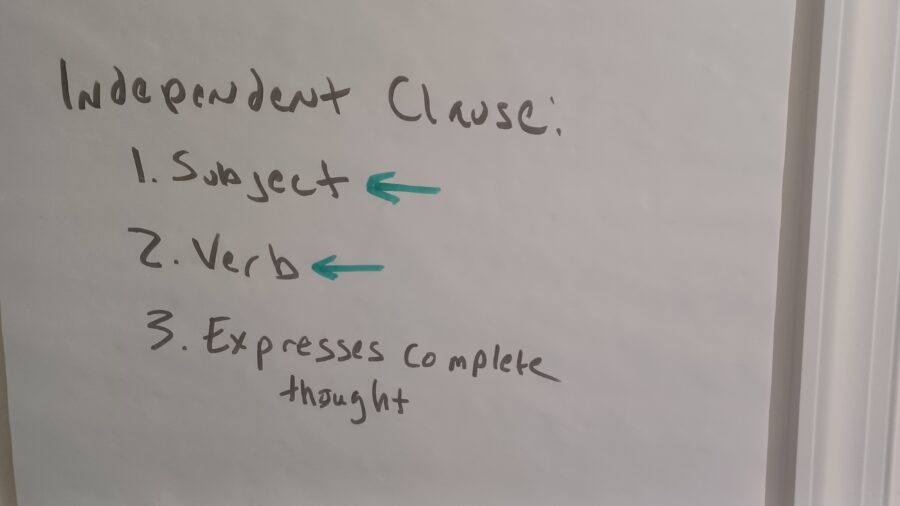The SAT, a third party assessment run by the College Board testing for various types of college readiness, has four different sections: Reading, Writing, Math (no calculator), and Math (with calculator). I work with a lot of students starting to prep for the Writing portion of the SAT.
The SAT’s Writing section is rooted in “standard English convention.” This is a set of rules that govern how ideas and sentences should be shaped. It is different from what is acceptable in everyday communication. We start to learn standard English Convention in grade school, but many of my students have to return to basics when preparing to take the test.
These rules are extremely important to various avenues of professional success. Many career fields rely on professionals’ ability to communicate effectively with peers, management, and the public. Important messages are lost if we cannot communicate information in a way that is easily understood by our audience. A recent example of this is the Netflix movie Don’t Look Up. The scientists involved failed to effectively communicate their message to the powers that be in a way that would save the Earth and humanity.
While we are not talking about saving the world, we are talking about making sure your future is as successful as possible. That starts with the most important lesson for the SAT Writing section: identifying the independent clause and its parts. An independent clause is basically a complete sentence. It requires a subject, a verb, and expresses a complete thought. It can stand on its own.
I want you to take notes right now. I want you to find a notebook and start writing down everything you learn about standard English conventions in the next few weeks. This is your bible. Additionally, many students retain new information better when they write it down.
INDEPENDENT CLAUSE:
- Subject (noun: person, place, thing, idea)
- Verb (action)
- Expresses a complete thought
Examples:
- I drove really far.
- ACTION/VERB: drove (to drive)
- Who did the action? “I” did the action.
- What is my complete thought? These are all acceptable independent clauses that have a subject, verb, and complete a thought:
- I drove really far.
- I drove far.
- I drove.
- While I drove really far.
- We’ve added a subordinating conjunction (because) here, so it changes the meaning of the sentence and doesn’t complete a thought.
While I drove really far, THEN WHAT HAPPENED?????? Come on, dude. We need to finish the sentence.
In my next post, I will cover how we combine two independent clauses. Eventually, we will go over subordination, active vs. passive voice, misplaced modifiers and concision.
